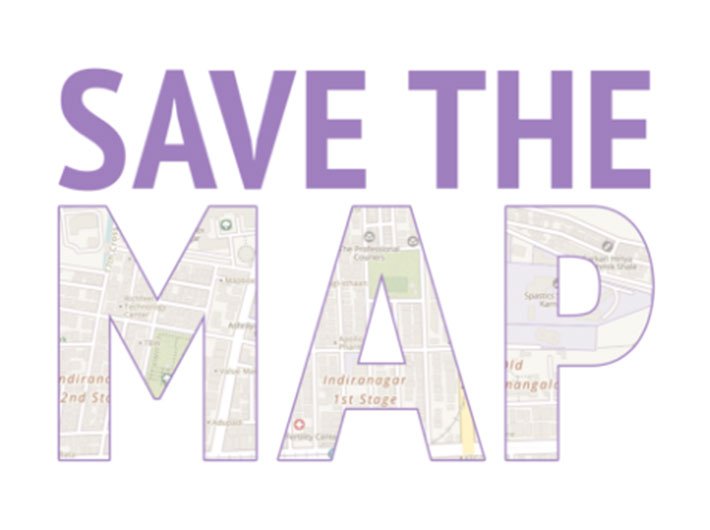Feedback and suggestions sought from the public until June 4 on the Geospatial Information Regulation Bill, 2016
After the success of ‘Save the Internet’ campaign that calls for net neutrality, another volunteer-based initiative – Save the Map – is gathering steam in the country. The initiative is in response to the draft Geospatial Information Regulation Bill, 2016 by the ministry of home affairs (MHA).
The draft bill has been under fire since its release on May 4. The bill seeks to license and regulate geospatial data in India. As per the MHA, the bill has been introduced to “regulate the acquisition, dissemination, publication and distribution of geospatial information of India which is likely to affect the security, sovereignty and integrity of India and for matters connected therewith or incidental thereto”.
Trying to allay fears of the bill, the home ministry has said that the bill is only in its preliminary stage and has invited feedback and suggestions from the public until June 4.
Save the Map initiative has drafted a readymade response on its site, which the users can send to the home ministry.
The draft response gives a series of reasons on why the current draft of the Geospatial Information Regulation Bill 2016 will discourage innovation and limit a person’s day to day activities.
The website also gives a list of interesting FAQs regarding the current bill and its impacts.
The twitter handle of @savethemap, as of May 16, has 271 followers.
Here is a brief backgrounder about the bill.
What is geospatial information?
The draft bill defines geospatial Information as “geospatial imagery or data acquired through space or aerial platforms such as satellite, aircrafts, airships, balloons, unmanned aerial vehicles including value addition; or graphical or digital data depicting natural or man-made physical features, phenomenon or boundaries of the earth or any information related thereto including surveys, charts, maps, terrestrial photos referenced to a co-ordinate system and having attributes”.
In simpler terms, a routine Facebook check-in to your favourite restaurant, where you post exact coordinates of a particular place on a map, is geospatial information. Geo means earth and spatial means relating to space, specifically on a location on map. Therefore, geospatial means anything that takes up space on earth for which we have coordinates.
What the bill says and how it impacts us?
The bill has been hailed as a “draconian bill” by various geospatial experts and organisations.
The bill states that “Dissemination, Publication or Distribution of the Geospatial Information of India-Save as otherwise provided in this Act, rules or regulations made there under, and with the general or special permission of the Security Vetting Authority, no person shall disseminate or allow visualization of any geospatial information of India either through internet platforms or online services, or publish or distribute any geospatial information of India in any electronic or physical form”.
In simpler terms, if the bill is passed, then it will become mandatory for an individual and organisation to obtain permission from the government authority before acquiring, disseminating, publishing and/or distribution geospatial information of India.
Also, whoever acquires any geospatial information of India in violation of the guidelines shall be punished with a fine ranging from Rs 1 crore to Rs 100 crore and/or imprisonment for a period upto seven years.
The website of Save the Map also details things which one cannot do if the bill comes into effect like, hailing an Uber/Ola by marking location on a map, geo-tagged images, sharing location on WhatsApp with friends, retweeting a map or satellite image, and many more.
Moreover, the draft bill will also harm the government’s ambitious programmes like Digital India and Smart Cities –the success of these plans depend a lot on real time satellite data and location and mapping technology. Experts also fear that the bill might affect startups as big companies like Google and Bing are still in a position to get their maps vetted by the government authority. As per the bill, “the Security Vetting Authority shall, within three months from the date of receipt of an application made under sub-section (2), either grant a licence with such conditions as may be specified thereon or reject the application as the case may be after examining the application in terms of the guidelines”. If a startup has to wait for three months to get a licence it might run into losses.
